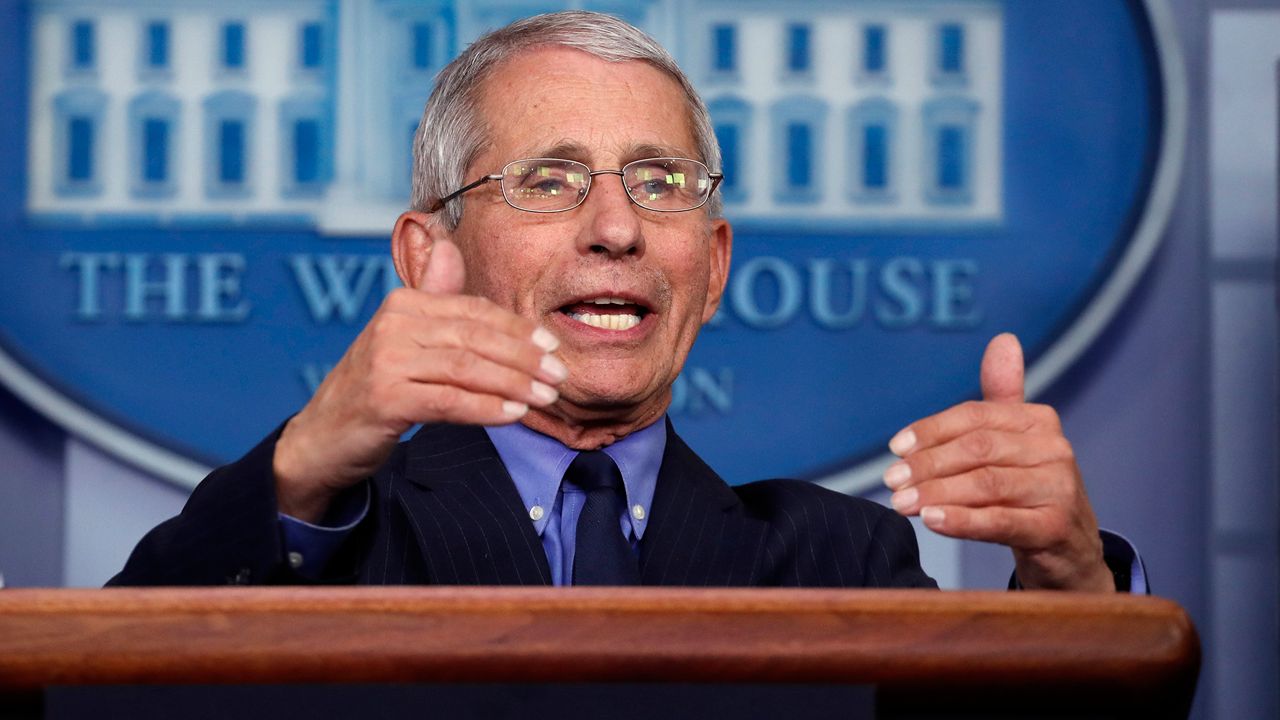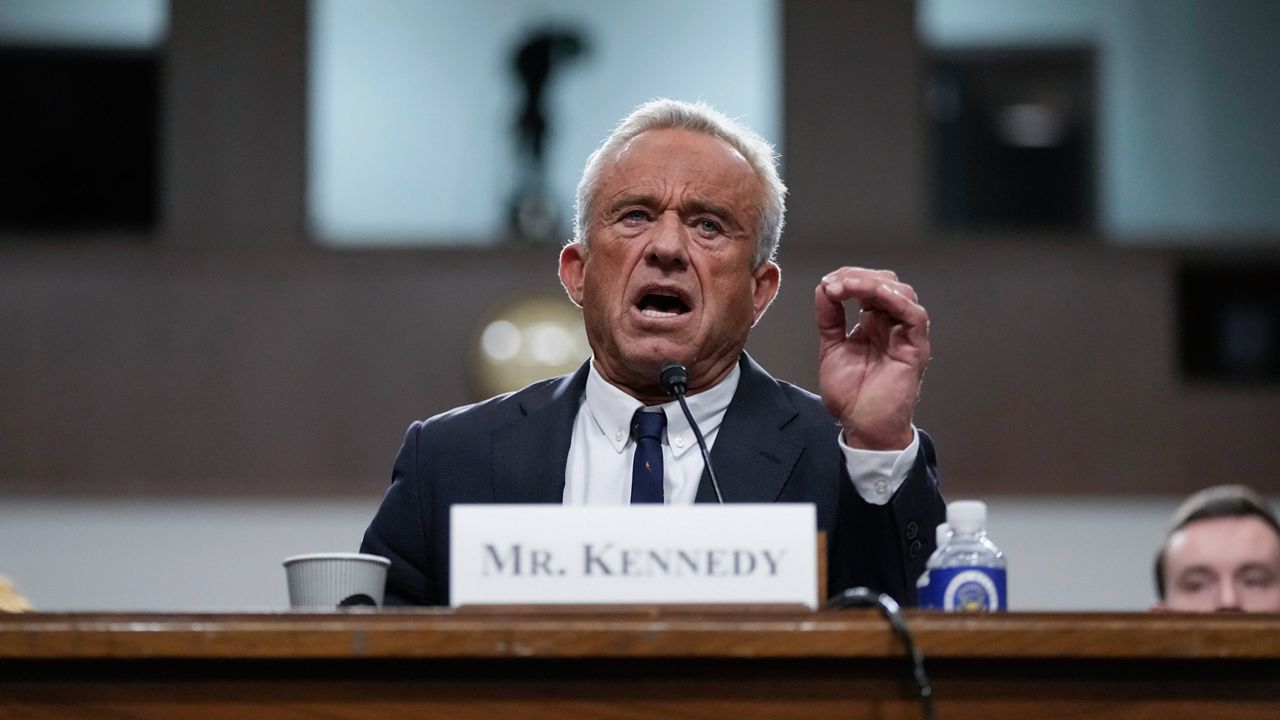Dr. Anthony Fauci, the nation’s top infectious disease expert, is warning of “some pain and suffering in the future” as coronavirus cases continue to rise.
Fauci said he doesn’t foresee more lockdowns in the U.S., but warned that the situation surrounding the coronavirus pandemic will continue to get worse because so many Americans are still unvaccinated.
“I don't think we're gonna see lockdowns,” the White House’s chief medical adviser told host Jonathan Karl. “I think we have enough of the percentage of people in the country – not enough to crush the outbreak – but I believe enough to not allow us to get into the situation we were in last winter. But things are going to get worse.”
“If you look at the acceleration of the number of cases, the seven-day average has gone up substantially,” Fauci added. “You know what we really need to do, Jon, we say it over and over again and it's the truth: We have 100 million people in this country who are eligible to be vaccinated who are not getting vaccinated.”
“We are seeing an outbreak of the unvaccinated,” Fauci continued.
“"We have 100 million people in this country … who are eligible to be vaccinated, who are not vaccinated," Fauci told CBS’ "Face the Nation” on Sunday. "We've really got to get those people to change their minds, make it easy for them, convince them, do something to get them to be vaccinated because they are the ones that are propagating this outbreak."
Fauci’s comments come on the heels of a rise in cases nationwide — Florida, the nation’s third-most populous state, reported 21,683 new cases of COVID-19 on Saturday, the state’s highest single-day total since the start of the pandemic — and new mask recommendations from the CDC.
The CDC recommended Tuesday that people who are vaccinated should wear masks indoors in parts of the U.S. where COVID-19 is surging, notably in areas classified as having "substantial" and "high" transmission of the coronavirus, as noted by county level on the CDC website.
"That has much more to do with transmission," Dr. Fauci said of the new CDC mask guidance. "You want them to wear a mask, so that if in fact they do get infected, they don't spread it to vulnerable people, perhaps in their own household, children or people with underlying conditions."
While this week the nation saw a surge in Americans getting the shot, as coronavirus cases rise driven largely by the more infectious delta variant, still only about 60% of Americans are fully vaccinated.
Fauci argued that the unvaccinated are affecting others because they’re “allowing the propagation and the spread of the outbreak,” and pushed back against critics who say whether to get the shot is an individual decision.
“The fact is, there are things that are individual responsibilities that one has,” Dr. Fauci said. “And there are things that have to do with you individually, which also impact others and get the spread of infection that we're seeing now.”
“The surge in cases … is impacting everyone in the country,” Fauci said.
“So in essence, you are encroaching on their individual rights because you're making them vulnerable,” he added. “So you could argue that situation both ways.”
Dr. Fauci also discussed the CDC report which led to the agency changing its guidance, saying the study “absolutely” shows that COVID vaccines work.
Fauci told CBS’ “Face the Nation” that “if you're vaccinated, you're much, much more protected against getting infected than an unvaccinated who is completely vulnerable.”
"If you do get infected, the likelihood of your getting a severe outcome of the infection is very low," he added. "It is much more likely that you will be either without symptoms or minimally symptomatic. So the vaccine is doing what you want it to do. It's protecting people from getting sick."
According to data through July 30 from Johns Hopkins University, the seven-day rolling average for daily new cases in the U.S. rose from 30,887 on July 16 to 77,827 on July 30. The seven-day rolling average for the country’s daily new deaths rose over the same period from 253 on July 16 to 358 on July 30, though death reports generally lag weeks after infections and even longer after hospitalizations.
Currently, 58% of Americans 12 years and older are fully vaccinated, according to the CDC’s data tracker.
However, people are “getting the message” and more are rolling up their sleeves amid the threat of the delta variant, according to the director of the National Institutes of Health. Dr. Francis Collins said on CNN’s “State of the Union” that vaccinations are up 56% in the U.S. in the last two weeks.
Louisiana, which has the most new cases per capita among states in the past 14 days, has seen vaccinations up threefold over that period, Collins said.
“That’s what desperately needs to happen if we are going to get this delta variant put back in its place, because right now it’s having a pretty big party in the middle of the country,” Collins said.
Collins also said that even with the prevalence of the delta variant, the shots are working “extremely well” and reduce a person’s risk of serious illness and hospitalization “25-fold.” The guidance for vaccinated people to start wearing masks indoors again in certain places with worsening outbreaks, he said, is mostly meant to protect unvaccinated and immunocompromised people.
The CDC has also recommended indoor mask-wearing for all teachers, staff, students and visitors at schools nationwide, regardless of vaccination status.








